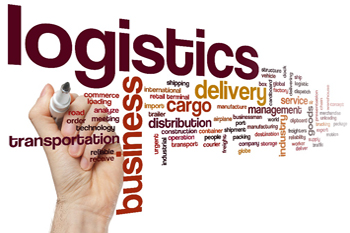De-minimis levels in EU imports – one more time!
“The European Commission announced it is proposing to extend the current VAT-system that applies for EU-intra-cross border services, the MOSS, to import and supply of E-commerce shipments. It also intends to dissolve the tax-exemption at import for shipments with a value of up to € 22, as this places regular retailers in the EU at a disadvantage”. Erasmus University of Rotterdam (RSM), in cooperation with National Trade Facilitation Committee of The Netherlands (ODB), are organizing an event titled “How to simplify the process and what are the implications for VAT in E-commerce considering the proposed changes of the EU?”. The event takes place on Tuesday 23 May 2017, 1-6pm, at the Erasmus University Rotterdam. CBRA recommends any interested party to join this timely seminar!
According to the RSM website, page https://www.rsm.nl, the seminar “will discuss the current status of these plans and the anticipated policies. Will the new EU legislation solve the problems of complexity? What are the consequences for customs import procedures if the Mini One Stop Shop will be applied at importation? Will it bring a level playing field for retailers, both in the EU and elsewhere? Are there any alternative procedures? And how will this system in new EU legislation impact on customs enforcement?”. Interesting questions, indeed!
As some of you CBRA Blog readers might recall, CBRA team executed a scientific study titled “The import VAT and duty de-minimis in the European Union – Where should they be and what will be the impact?”, during years 2013-14. You can find our 2015 Blog on the study here: https://www.cross-border.org/2015/02/09/de-minimis-study/ . Based on objective import (millions of) records and cost data (both from the express sector), certain (limited) data from multiple EU customs administrations, as well as outcomes of an independent consumer survey, the study made following key conclusions and recommendations:
- VAT de-minimis should be raised to 80 EUR from the current 22 EUR – this is due to the fact that the total cost of collection faced by Customs administrations and the private sector currently exceeds the revenues collected.
- While increasing de-minimis levels might affect the buying behaviour of consumers, such changes are not likely to be significant – for example, quality and dealer-reputation are more important to consumers in their purchase decisions.
- Raising the VAT de-minimis would enable Customs administrations across the European Union to reallocate resources towards higher priorities such as: the collection of higher revenues; anti-fraud activities; addressing product safety and intellectual property violations; and supply chain security.
- Development of an improved understanding of the costs faced by EU Customs administrations is crucial to the future enhancement of EU-level and national policy and regulatory decision-making in the future – as, today, significant shortcomings are apparent e.g. among the captured labour and technology costs.
- Investments in further harmonization and lean government programs across the EU are needed – as today there are significant and costly variations across Member States, for example in VAT-levels and rules, as well as in the practical implementation of customs procedures.
Unfortunately, it appears that not much of our recommendations were taken on board by the EC – our guess is that the topic became “overly political”, in the context of “total economic rational (i.e. do not collect low taxes where the total collection cost (government + private sector) is higher than the tax collected)” versus “placing regular retailers in the EU at a disadvantage”. We would have expected a rational increase in the VAT de-minimis to the level of 80 EUR, instead of totally abolishing the VAT de-minimis in the EU.
Well, now when it seems that the “VAT de-minimis abolishment procedure is in place, in an irreversible manner”, we encourage next all involved parties to work hard towards “highly cost-effective collection models, procedures and tools” – as collecting say 0.2 EUR import VAT -tax shouldn’t cost more than 1-2 cents, for customs and supply chains combined, in the future. Hopefully such approaches will be explored during the 23 May 2017 seminar at the Erasmus University Rotterdam!
CBRA Blog on 23.4.2017, by Dr. Juha Hintsa
PS. This event is organised by RSM in cooperation with the ODB to celebrate the accreditation of RSM’s Master in Customs and Supply Chain Compliance programme. This modular programme for international professionals in Customs and Trade Compliance is the first that is grounded in the EU Competence Framework for Customs
Webpage: https://www.rsm.nl
Bibliography: Hintsa, J., Mohanty, S., Tsikolenko, V., Ivens, B., Leischnig, A., Kähäri, P., Hameri, A.P., and Cadot, O. (2014), The import VAT and duty de-minimis in the European Union – Where should they be and what will be the impact? Final Report, Brussels, Belgium.
You can download the full report here: https://www.researchgate.net




